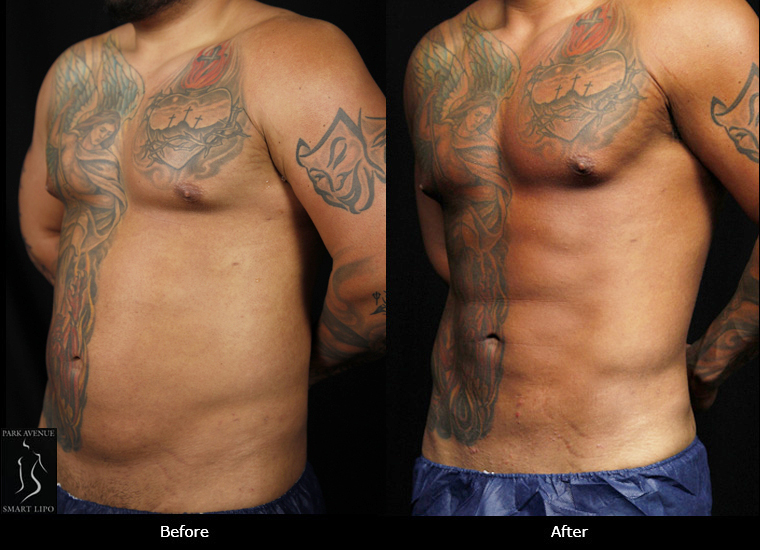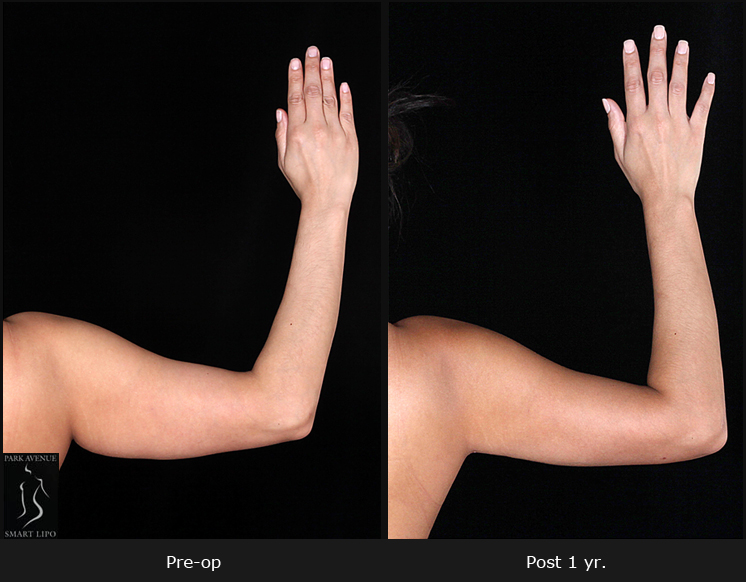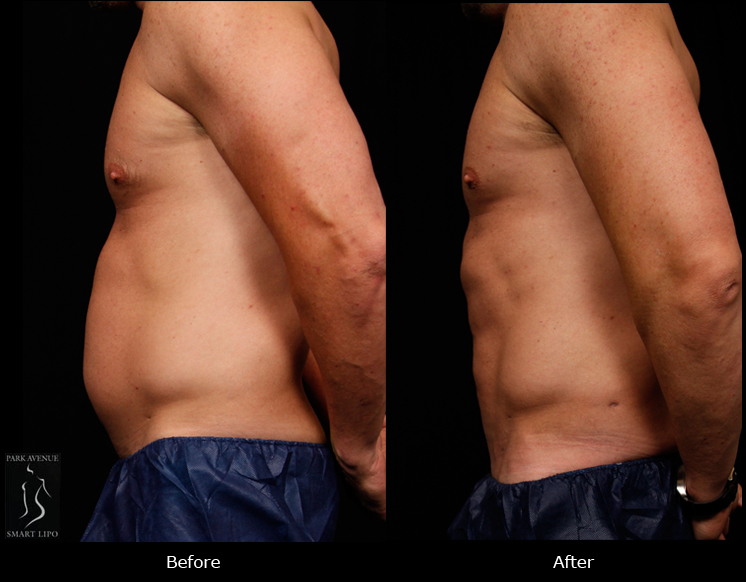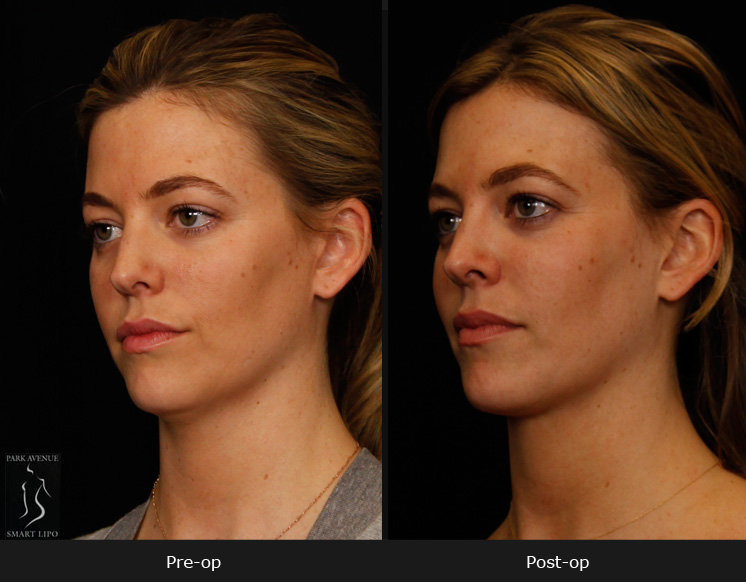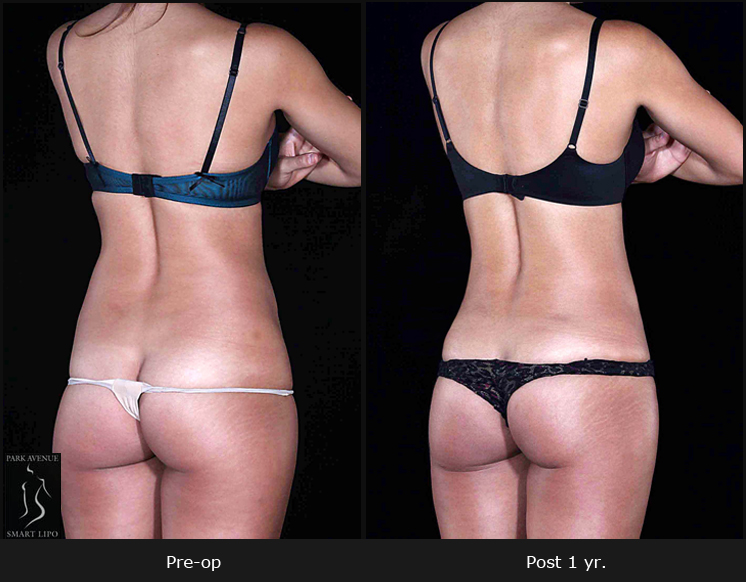Liposuction is the gold standard s for removing excess fat from various areas of body that are resistant to diet and exercise. An increasing number of men and women are opting to have this body contouring procedure to shape up. Liposuction was among the top five most asked-for treatments even during the COVID-19 pandemic, according to a recent American Society of Plastic Surgeons (ASPS) member survey. Skilled plastic surgeons perform laser liposuction in NYC using the innovative, minimally-invasive Smartlipo Triplex workstation.
Smartlipo laser lipo is a safe and effective fat removal procedure that can be performed as an outpatient basis under local anesthesia. It can provide you with a toned, well-shaped body with little downtime and minimal side effects. A plastic surgeon with extensive experience and skill in performing laser liposuction can provide excellent results for the right candidate.
Though laser liposuction generally provides long-lasting results, excessive weight gain can dilute the results of your procedure. Maintaining a healthy lifestyle post liposuction is crucial to maintain the outcomes. Following your surgeon’s dietary and exercise recommendations is very important to maintain the results of your laser liposuction treatment.
Dietary Recommendations
Following your surgeon’s diet recommendations will encourage healing and also prevent excessive weight gain that could negatively impact the new look you achieved with laser liposuction. Generally, your post-laser lipo diet should include a sufficient amount of minerals, nutrients, and energy-inducing foods, which will accelerate the healing process and help the body, recover its strength naturally. A balanced diet will prevent the weight gain that occurs with unhealthy eating habits.
Livestrong provides guidance on foods to include in your diet and those that should be avoided post lipolysis:
- Adopt a Low-Fat Diet: After laser liposuction in NYC, follow a low-fat diet and avoid a diet that is high in saturated fat – commonly found in fast food, fried foods, baked goods, fatty meats and full-fat dairy products.
- Incorporate Healthy Foods: Eat healthy. Make sure your diet includes plenty of fruits, vegetables, whole grains and low-fat sources of protein such as lean meats, fish and legumes, as it helps promote healing and maintains your new look.
- Avoid Unhealthy Foods: Avoid processed foods which contain unhealthy Trans fats, and salty and sugary foods. Stick to a low sodium diet. Salty foods should be avoided for at least 2 to 4 months post-liposuction, as high levels of sodium can increase inflammation and slow the healing process. Similarly, limit or restrict consumption of sugary foods as it can lead to weight gain during the healing process. Also, most sugary foods are low in vitamins and nutrition and do not offer healing benefits.
- Incorporate Herbs and Spices: Include herbs and spices such as garlic cloves, cinnamon, dried basil, oregano and parsley in your food.
- Don’t Overeat: Instead of overeating, eat smaller meals throughout the day and practice good portion control. This will help maintain your energy levels and keep you from feeling deprived between meals.
- Avoid Dehydrated Foods: It is advisable to avoid dehydrated foods and dried fruits as it might cause constipation and cause a “heavy” feeling.
- Limit Alcoholic Beverages: Limit your alcohol consumption, including beer, wine and liquor, at least for 24 hours after your liposuction treatment. In fact, many experts advise avoiding alcohol for at least a week because alcohol can interfere with the effects of some medications, causing health issues, and delaying healing.
- Stay Hydrated: Drinking lots of water and natural juices will help avoid dehydration, improve digestion, and control hunger. It will also help maintain a healthy metabolism.
However, if you fail to follow a proper diet plan, you might witness your newly-contoured shape reverting back to its former, pre-treatment self.
Exercise Guidance
As laser liposuction is not a surgical procedure and is much gentler on the body than traditional lipo, you can return to your normal life, like going to work and engage in light to moderate physical activities – such as walking – pretty soon. However, avoid strenuous exercises like aerobics, weight lifting, swimming, or running, until the time advised by your surgeon. You can resume heavy exercises based on your doctor’s advice.
If you did not work out before your treatment, you might have to start exercising routinely after laser lipo. Starting a regular exercise program after laser lipo significantly reduces the possibility of post-treatment weight gain. Start off with mild activities and gradually increase them up to tolerable levels. Incorporate resistance exercises or weight training – which can be resumed after the second week from surgery – into your exercise regimen, as it helps to tighten the skin and tone the muscles.
Apart from proper diet and exercise, other things for long-lasting laser lipo results include:
- Getting enough sleep- at least 8 hours sleep a night.
- Managing your stress levels.
Adopting these lifestyle changes before having your laser lipo treatment is a great idea, as it will help you keep your great new body in shape.
If you are planning to get laser liposuction in New York, choose an AAAASF-accredited plastic surgery practice that provides the service of plastic surgeons who have extensive experience in performing the procedure. Expert plastic surgeons will educate patients about the treatment and provide satisfactory answers to all their questions about the treatment, including managing the pre- and post-op phase. Choosing a reliable plastic surgery facility with experienced surgeons is crucial for safe treatment, smooth recovery, and long-lasting optimal outcomes.
| Related blogs |

